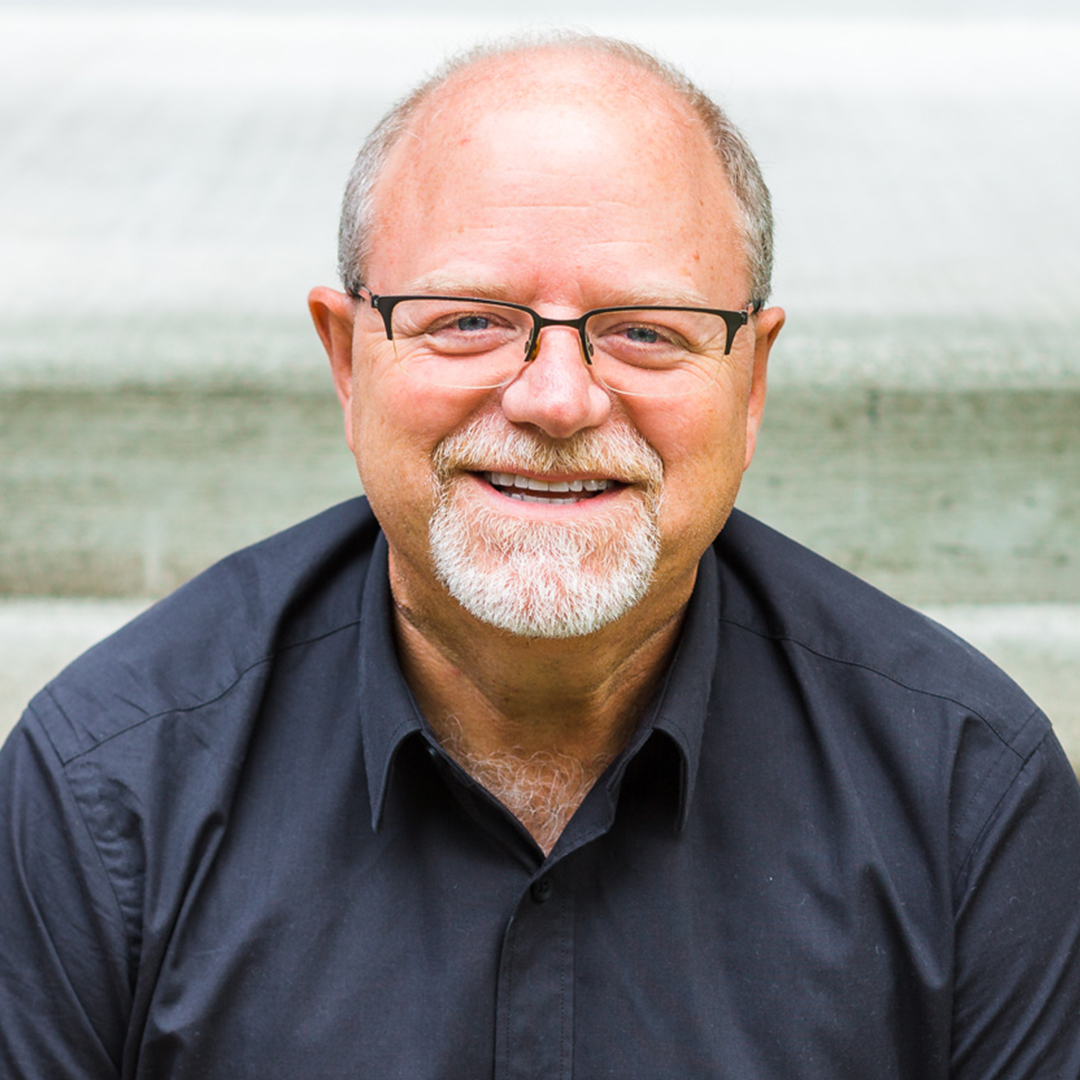
Bishop Keith Cowart
Bishop Keith Cowart, D.Min., oversees Free Methodist ministries along the Eastern Seaboard, in the South Central United States, and also in Europe and the Middle East. He was elected a bishop of the Free Methodist Church USA at General Conference 2019. He previously served as the superintendent of the Southeast Region Conference after 21 years as the founding lead pastor of Christ Community Church in Columbus, Georgia.
By Bishop Keith Cowart
Whatever.
If you’ve spent any time with a teenager lately, you probably hear that word with a snarky, eye-rolling emoji 🙄, but that’s not the way I want you to hear it here.
Hear it in the voice of a first century teenage girl who has just been told by an angel that her world is about to be turned upside down. Though she has been with no man, she will have a child who will be the Savior of the World: Her response: “I am the Lord’s servant, and I am willing to accept whatever he wants” (Luke 1:38 NLT).
Hear it in the voices of Peter and John before the Jewish Council after they were warned to stop preaching about Jesus — or else. Their response: “Whatever you need to do we understand, but we cannot stop speaking about what we have seen and heard” (my paraphrase of Acts 4:18-20).
And hear it in the voice of the Apostle Paul when he says to the Philippian church, “I rejoice in the Lord greatly that now at last you have revived your concern for me; indeed, you were concerned for me, but had no opportunity to show it. Not that I am referring to being in need; for I have learned to be content with whatever I have. I know what it is to have little, and I know what it is to have plenty. In any and all circumstances I have learned the secret of being well-fed and of going hungry, of having plenty and of being in need. I can do all things through him who strengthens me” (Philippians 4:10-13 NRSV).
It’s one of the most famous passages in all the Bible. You can find it on everything from billboards to refrigerator magnets. It’s a favorite of team chaplains in the locker room just before a big game. It’s a go-to verse for folks who are about to attempt something they’ve never done before. And it’s almost always used out of context — more often than not, in a way that is actually the opposite of what Paul had in mind.
_
“Most people think of this verse only in terms of victory or success.”
_m
Most people think of this verse only in terms of victory or success. No one ever said, “I can do all things through Him who strengthens me” as a way of preparing for failure. We use it to instill confidence in ourselves, to fire ourselves up so we can go out and conquer the world!
But that’s not at all what Paul is saying here. This is not a pep talk for timid or insecure Christians. If that’s all it is, what happens if you don’t succeed? If you don’t win? If you fail? You’re right back where you were, only worse. Now you have to deal with actual failure, not just the possibility of it.
But what if there is a state that guarantees a deep, unshakeable sense of well-being in every situation? That’s exactly what Paul is getting at. The ESV puts it this way:
“I know how to be brought low, and I know how to abound. In any and every circumstance, I have learned the secret of facing plenty and hunger, abundance and need. I can do all things through him who strengthens me” (v. 12–13).
So let’s dig into the details. What exactly is Paul saying?
True Contentment
First, he’s saying that Christ is the secret to true contentment.
Now to some of us, that’s so obvious it almost sounds like a Bible school answer. But you have to understand that to a first century Roman, everything Paul says in verses 11-12 would have sounded like it was coming straight out of a Stoic playbook. The Stoics were all about finding contentment in every circumstance. Their line was, “You should be sufficient unto yourself for all things, and able, by the power of your will, to resist the force of circumstances” (Peter T. O’Brien, Commentary on Philippians, New International Greek Testament Commentary, p. 521). The goal was to discipline yourself until you want nothing because you won’t allow yourself to need anything.
_
“… but what happens when my willpower wanes? What happens when I grow weak?”
_m
But Paul throws them a major curveball when he says the way to contentment is not self-sufficiency but God-sufficiency, not human willpower, but the power of the indwelling Christ. I can make myself content for a season by ratcheting up my willpower, but what happens when my willpower wanes? What happens when I grow weak? I can tell you what happens: I become discontent! Paul is saying there’s a better way. In the words of Kent Hughes, “Paul is sufficient and content not because he is independent but because he is totally dependent — upon Christ.”
Ends of the Spectrum
Second, Paul speaks of contentment at both ends of the spectrum. He says, “In Christ, I can be content with little or with much — with being brought low or with abounding.” Both ends have their challenges.
You would think it would be much easier to be content with much, but when you look at the lives of the rich and famous, that doesn’t seem to be the case. Someone once asked John D. Rockefeller, the richest man in the world at the time, how much money it takes to make a man happy. His answer? “One more dollar.” Though he was worth billions, he was still not content.
_
“Paul’s remedy is not to demonize wealth, but to encourage generosity, a quality that thrives in contentment.”
_m
It is important to note that the Bible nowhere teaches that wealth, prosperity, or success are inherently wrong, but it does warn of their dangers. One of the most direct warnings specifically identifies the absence of contentment as the gateway to temptation that leads to “ruin and destruction” (1 Timothy 6:6-10). Significantly, Paul’s remedy is not to demonize wealth, but to encourage generosity, a quality that thrives in contentment.
One of the greatest examples of generosity in the New Testament is the story of the Macedonian churches of 2 Corinthians 8. The background to this story is that Paul has been trying to raise support for the struggling church in Jerusalem. The Corinthians, who lived in one of the wealthiest cities in the world at the time, had promised big but delivered little. To challenge them, he tells them about the Macedonian church:
“We want you to know, brothers and sisters, about the grace of God that has been granted to the churches of Macedonia; for during a severe ordeal of affliction, their abundant joy and their extreme poverty have overflowed in a wealth of generosity on their part. For, as I can testify, they voluntarily gave according to their means, and even beyond their means, begging us earnestly for the privilege of sharing in this ministry to the saints” (2 Corinthians 8:1-4 NRSV).
Now, in what world does severe ordeal + extreme poverty = overflowing in a wealth of generosity? In the world of the Macedonian churches, that’s where! Obviously, Paul had determined not to ask them to contribute because they were as bad off as the church in Jerusalem. But they begged for the privilege to give. Why? Because while they were extremely poor and facing a severe ordeal, they were also rich in “abundant joy,” which is nothing more than contentment on steroids. Add that to the equation above, and it changes everything.
Now, here’s the clincher. Who do you think scholars believe the “Macedonian churches” to be? That’s right, it was Philippi. Clearly, they didn’t just hear Paul’s message; they lived it to the max!
_
“Any attempt to substitute anything else for Jesus will ultimately lead to discontent. “
_m
But what was the secret that Paul proclaimed and that fueled the Philippians’ generosity? The answer really is Jesus, but how is Jesus the secret to contentment? I believe he was pointing to the great spiritual truth that the only “thing” that can satisfy the deepest longings of our souls is a living relationship with Jesus Christ. Any attempt to substitute anything else for Jesus will ultimately lead to discontent. A.W. Tozer explains:
“Before the Lord God made man upon the earth He first prepared for him by creating a world of useful and pleasant things for his sustenance and delight. In the Genesis account of the creation these are called simply ‘things.’ They were made for man’s uses, but they were meant always to be external to the man and subservient to him. In the deep heart of the man was a shrine where none but God was worthy to come. Within him was God; without, a thousand gifts which God had showered upon him.
“But sin has introduced complications and has made those very gifts of God a potential source of ruin to the soul.
“Our woes began when God was forced out of His central shrine and ‘things’ were allowed to enter. Within the human heart ‘things’ have taken over. Men have now by nature no peace within their hearts, for God is crowned there no longer, but there in the moral dusk stubborn and aggressive usurpers fight among themselves for first place on the throne.”
But it doesn’t have to be this way. When Christ is allowed to take His rightful place as Lord of our lives, the usurpers lose their grip, peace returns, and we find contentment that cannot be robbed by any circumstance.
Learning Contentment
Finally, Paul speaks twice in this passage of “learning” contentment. That should be encouraging to all of us. If Paul had to learn it, then so do we. And how did he learn it? By living! He experienced seasons of abundant blessings, but he also endured poverty and suffering that most of us can hardly imagine. And along the way, Paul learned that God is always present, always faithful, and always more than enough.
In her book, “Prayer in the Night,” Tish Harrison Warren tells the story of a friend whose son was facing a difficult and risky surgery. As he was being taken into the operating room, she turned to her husband and said, “We have to decide right now whether or not God is good, because if we wait to determine that by the results of this surgery, we will always keep God on trial.”
_
“Biblical faith is not based on the belief that God will always answer my prayers according to my own understanding of what is best.”
_m
I believe with all my heart that God is a miracle-working God, but I have also come to believe that true, biblical faith is not based on the belief that God will always answer my prayers according to my own understanding of what is best. Rather, faith in the goodness of God enables me to trust Him — to be content — in every situation.
2022 was a year of graduate school education in this kind of contentment for my family. In July, four generations of Cowarts gathered in Orlando to celebrate my parents’ 60th wedding anniversary. Eighteen of us were physically present with the other two joining by video. My parents shared stories of both hard times and good but, in the end, marveled at how good God has been to our family. Above all, we rejoiced that every member of our family is currently walking in a meaningful relationship with Jesus Christ. It was a glorious occasion filled with laughter and joy.
_
“We went from supreme happiness to the most intense pain I’ve ever experienced in a matter of weeks.”
_m
Just six weeks later, most of that same group gathered on our youngest son’s front lawn, holding one another and weeping as we grieved the sudden and tragic loss of the youngest member of our clan. We went from supreme happiness to the most intense pain I’ve ever experienced in a matter of weeks.
But we were not alone. Just as He was with us in Orlando, He was with us on our son’s front lawn. He is still with us, and we are learning on an entirely new level what it means to say, “Whatever the situation, we can do all things through Christ who strengthens us.”
+

Bishop Keith Cowart
Bishop Keith Cowart, D.Min., oversees Free Methodist ministries along the Eastern Seaboard, in the South Central United States, and also in Europe and the Middle East. He was elected a bishop of the Free Methodist Church USA at General Conference 2019. He previously served as the superintendent of the Southeast Region Conference after 21 years as the founding lead pastor of Christ Community Church in Columbus, Georgia.









